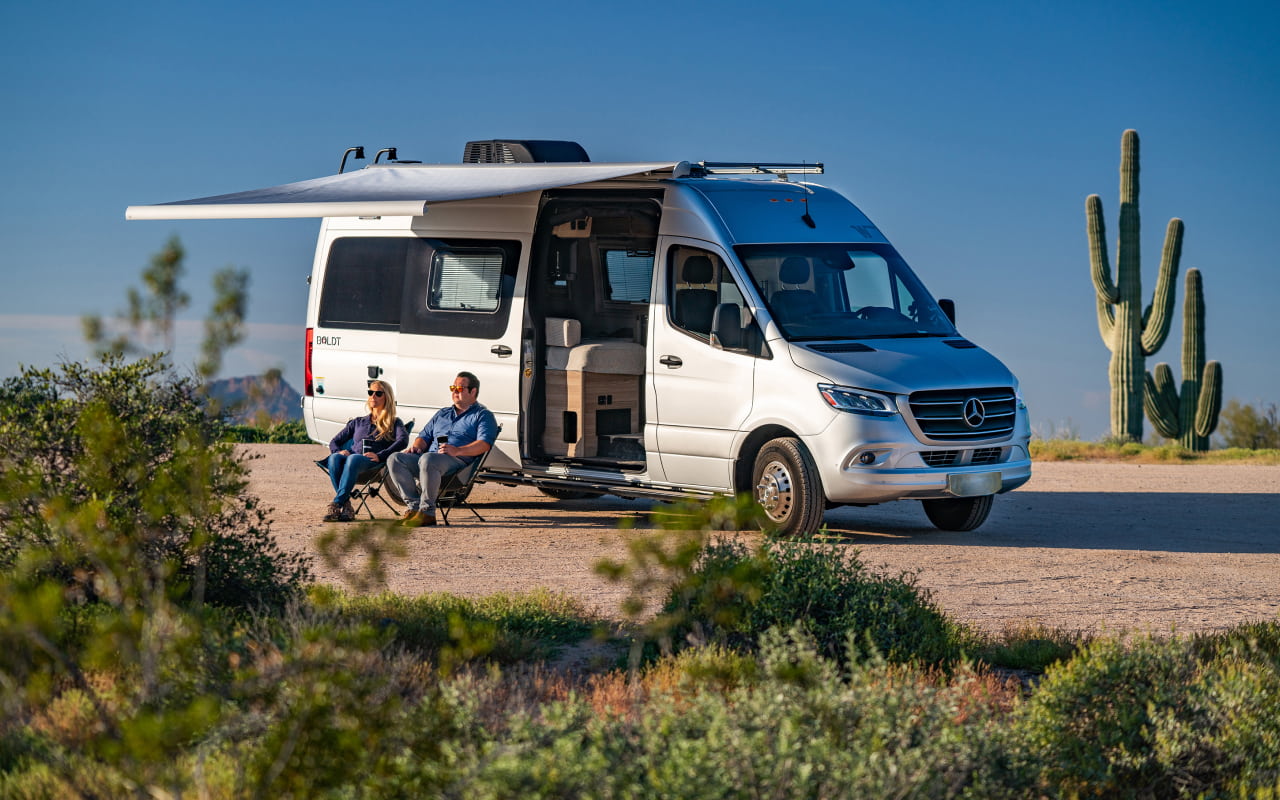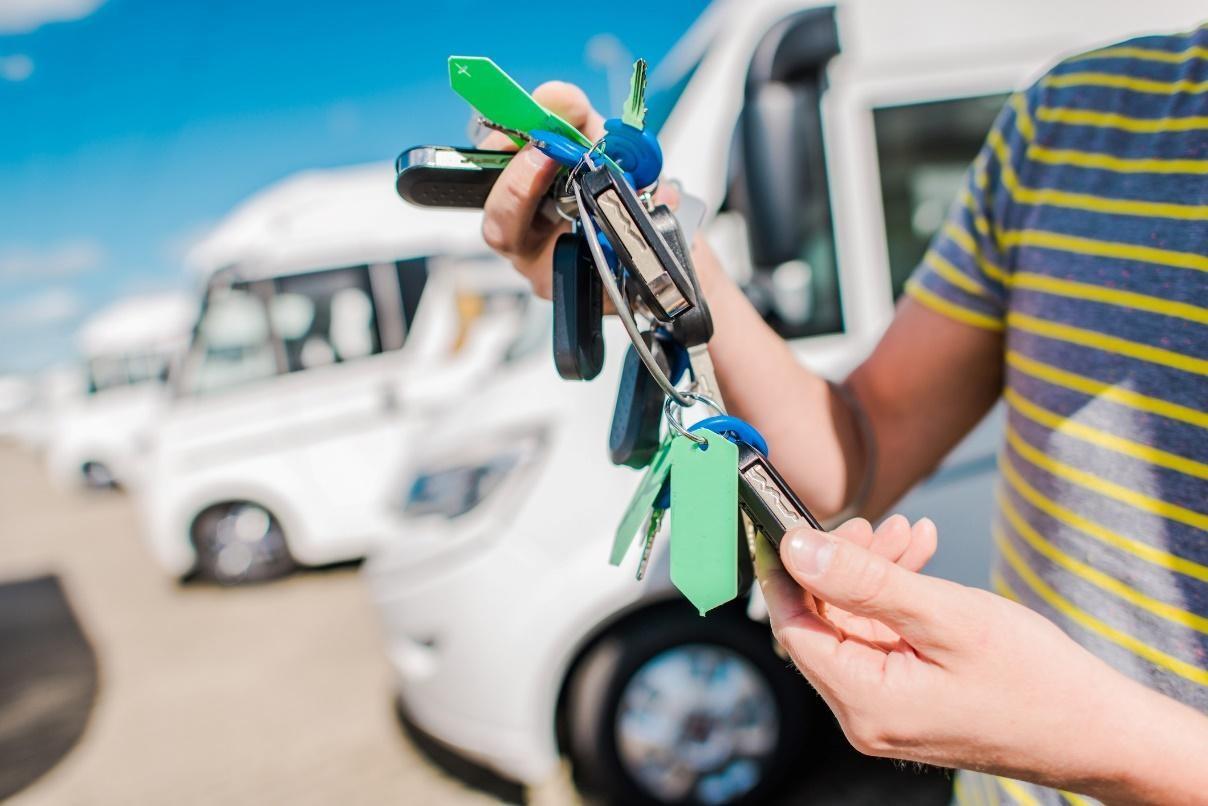
So you’re ready to start browsing RVs for sale and join the world of camping in your very own RV! Getting an RV and hitting the road can be exciting, but it may require a few extra steps if you live in a state that requires additional licensing. Depending on where you live and the type of RV you’re driving, you may need a special license to drive an RV. Most states do not have requirements for special license types for the majority of RVs and motorhomes on the road, but it’s important to check the requirements of your home state so you have the right license.
Will I Need a Special License to Drive My RV?
In most states and with most RV types, you will not need a special license to drive your RV. We recommend checking your state’s DMV for the exact requirements, as each state has its own rules regarding RVs and special licenses. There are a few states where RVers may need to update their license to accommodate their RV type.
In general, RVs under 26,000 pounds do not need an additional license for operation. This includes many Class C RVs, toy haulers, travel trailers, and pop-up campers. In fact, there are even Class A motorhomes and Class B RVs that are below 26,000 pounds, meaning you may be able to drive a larger RV without needing a special license. Some states require a special license for RVs above a certain length, usually those longer than 40 feet.
Which States Require a Special License to drive an RV?
The majority of states do not require a special license to drive an RV, no matter the weight or size. But a small handful of states do have requirements for additional licensing, such as a CDL, for RVs that are of a certain weight or size.
States with additional RV licensing requirements include:
- Arkansas for vehicles over 26,000 pounds gross weight.
- California for motorhomes over 40 feet, trailers weighing over 10,000 pounds, or fifth wheels weighing over 15,000 pounds.
- Hawaii for RVs over 26,000 pounds or multiple vehicles over 26,000 pounds gross weight.
- Kansas for RVs over 26,000 pounds or multiple vehicles over 26,000 pounds gross weight.
- New Mexico for RVs over 26,000 pounds or multiple vehicles over 26,000 pounds gross weight.
- New York for RVs with a gross combined vehicle weight over 26,000 pounds.
- North Carolina for single or gross combined vehicle weight over 26,000 pounds.
- Maryland for vehicles weighing over 26,000 pounds.
- Pennsylvania for single or gross combined vehicle weight over 26,000 pounds.
- Texas for single or gross combined vehicle weight over 26,000 pounds.
- Washington DC for RVs over 26,000 pounds or multiple vehicles over 26,000 pounds gross weight.
- Wyoming for RVs over 26,000 pounds or towing over 10,000 pounds.
The exact rules vary from state to state and may change, so always check with your state’s DMV for requirements. As a standard rule of thumb, vehicles with a single gross weight or combined gross weight under 26,000 pounds do not generally require a special license in any state. This also applies to towable RVs, so in most cases you will not need a special license to pull a fifth wheel, travel trailer, or toy hauler. Our RV experts are happy to help with any licensing questions you may have!
What Kind of License Do I Need to Drive an RV?
For most RVs and states, a standard driver’s license is all you need to drive your RV. If your RV, towing vehicles, or motorhome clock in above the maximum length or above 26,000 pounds, you may need a special license to register, own, and operate it in certain states. Typically, special RV licenses are either CDL or Class B. Many RVers think they don’t need a CDL if they aren’t driving their RV for commercial purposes, but some states may require the CDL if the RV exceeds a certain weight or if it’s transporting over 16 people, which includes the driver.
Special RV licenses include:
- CDL, which stands for commercial driver’s license. There are several classes of CDLs and most states do not require a CDL for RVers.
- Class B, which can be commercial or non-commercial depending on the state. California is a state which requires non-commercial Class B licenses for certain RVs.
- R Registration, which is an additional registration in the State of New York for recreational vehicles with a gross vehicle weight over 26,000 lbs.
If you’re unsure whether or not you’ll need a special license for your RV, let our team help! We can help you choose the RV that fits your desired license type, such as choosing an RV that’s under the weight limit that may require a unique license. If your dream RV does require a special license, our experts can help you understand what the requirements may be so you can enjoy your RVing for years to come. Stop by your local Lazydays RV dealership today to learn more about driving your dream RV!



